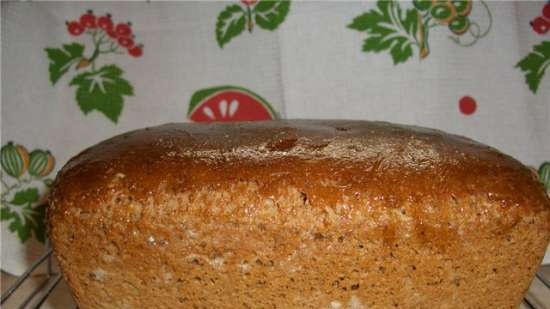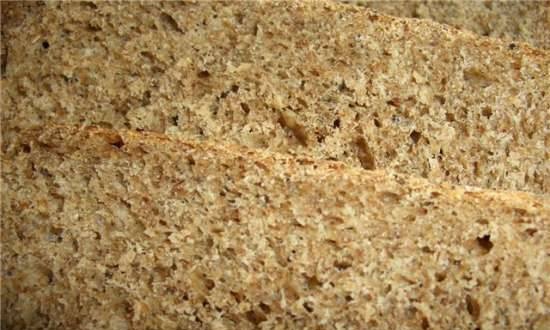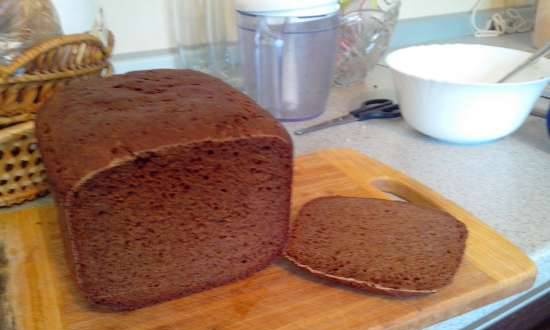|
 Rye has always enjoyed special attention among the poets of Europe. When they needed to hide the lovers from prying eyes, they sent them to the rye field. Rye has always enjoyed special attention among the poets of Europe. When they needed to hide the lovers from prying eyes, they sent them to the rye field.
Let's listen to the classic of English poetry by Robert Burns:
If someone called someone
Through thick rye
And someone hugged someone, -
What will you take from him?
And what a concern to us,
If at the border
Kissing with someone someone
In the evening in the rye!
Doesn't it seem strange to you that they kissed in the rye and not in other crops - not in wheat and not in oats? This is not a coincidence. Burns is a keen observer. He knew well that rye reliably protects from prying eyes, because it is high! Our classic N. Nekrasov confirms this:
Straighten you, high rye,
Keep the secret sacred!
This is also about lovers. And again it is emphasized: "high rye".
And then the question arises: why did the peasant in Russia and the British Isles need to grow high rye? After all, a tall plant lays down more easily, which, from the point of view of a farmer, is an undesirable sign. And if the peasants, a practical people, kept the long-stemmed rye and did not try to select short-stemmed varieties, it means that they had good reasons for this.
These grounds are weed control. The peasants knew very well that it was dark in dense and tall rye, as in a forest thicket, and weeds could not take root there. Rye was even specially sown where it was necessary to crush the weeds. Herbicides then there was no trace, and they got out of the situation with simpler and safer means.
Growing rye, however, is half the battle. Skillfully using it is also not an easy task. Even baking rye bread is a whole science. Another mistress will start a yeast dough - and nothing will come of it. There is little gluten in rye flour, and the dough will not rise. He needs yeast, not yeast. But, even having the leaven, you still need to know a lot of all sorts of subtleties, have experience and intuition.
Big lovers of rye bread, the Finns have carried rye loaves for many years when they returned from a tourist trip to Moscow... They didn't get their bread in Finland. Let's go to study with us. But even then, our Russian bakers had to go to Finlandto establish the production of black bread there.
It is remarkable that they did not know how to bake good rye bread in St. Petersburg before. Therefore, he was taken to the royal court from Moscow. The famous baker A. Filippov was there. He knew many grain secrets. And he jokingly said that rye bread does not work out in St. Petersburg because the Neva water is not suitable for it!
This product is also difficult for the British. And therefore it is expensive there. Here is what our biochemist Academician A. Oparin told about this. He came to the convention in London. The assembled scientists promised to treat them with “bread for the rich”. It turned out to be an ordinary rye.
True, people's tastes differ. Roman classic Pliny the Elder disapproved of black bread: "This is a real grief for the stomach!" I don't know why he said that. Perhaps, in those ancient times, at the beginning of our era, they ate too much black bread in Rome? Or maybe there was a bad leaven or there was none at all?
However, even today rye is not beneficial for all living things. Poultry farmers, for example, are very careful about such grain. Rye starch swells up in the stomach. If you give it to the chickens enough, trouble is inevitable.
Such a case is told. One peasant's chickens were constantly sick and died. The year has come that the rye has failed. I only had enough for myself, and the chickens did not get a grain. The poor man went to a nearby monastery and begged there for a bag of rye on loan.
He distributed the grain so that every day he gave his wards only a few handfuls.
To his surprise, the peasant saw that on the half-starved ration, the chickens felt better and not one of them died. The next year was also unsuccessful, and he again went to the monastery. The monks again lent him products. And again the chickens were healthy. Then came a year with a bountiful harvest, but this time the peasant borrowed the traditional sack. Out of curiosity. When he came to repay the debt, he asked the monks what kind of grain he was given;
“The one that you returned to us,” they answered.
The answer to this story is simple. Chickens get sick if they are fed fresh, freshly harvested rye grains. Or give it too much.
Zootechnicians are now well aware that grain can be added to the feed only three months after harvesting. Better yet, if you lie down longer. But even the old, well-worn one should not be given more than one-twentieth of the whole meal.
All these wisdom Pliny the Elder, probably, were not known. We know them, and when we eat rye bread, we observe the measure. And we don't feel any harm. On the contrary, the scented black slice is very healthy. The London-based Medical News recently reported that coronary artery disease is much less common in people who eat black bread... And this is because it contains twice as much potassium as white, three times as much magnesium and 30 percent more iron.
A. Smirnov. Tops and roots
|
 Rye has always enjoyed special attention among the poets of Europe. When they needed to hide the lovers from prying eyes, they sent them to the rye field.
Rye has always enjoyed special attention among the poets of Europe. When they needed to hide the lovers from prying eyes, they sent them to the rye field. 









